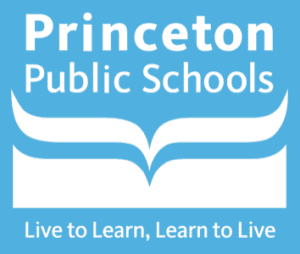 On January 28, 2025, Princeton voters will be invited to the polls (or can have the opportunity to return Mail-in ballots) to cast their vote for the latest Princeton Public Schools (PPS) Facilities Bond Referendum. This direct vote by the electorate could authorize the district to raise up to $89.1M for expansions and renovations at PPS facilities. The vote could have a major impact on both Princeton Public Schools and the greater community. What are the impacts? We’ll break it all down for you here.
On January 28, 2025, Princeton voters will be invited to the polls (or can have the opportunity to return Mail-in ballots) to cast their vote for the latest Princeton Public Schools (PPS) Facilities Bond Referendum. This direct vote by the electorate could authorize the district to raise up to $89.1M for expansions and renovations at PPS facilities. The vote could have a major impact on both Princeton Public Schools and the greater community. What are the impacts? We’ll break it all down for you here.
WHAT DOES EACH QUESTION OFFER?
The full $89.1M is a large sum, and PPS knows that. So, it has broken its desired goals down into three questions, giving voters a greater role in deciding in how much and which projects the district will pursue.
To understand the impact of the referendum approvals on the district, it is important to gain insight as to what each question will provide for.
It is essential to understand that Question 2 can only pass if Question 1 passes, and Question 3 can only pass if voters approve Questions 1 & 2.
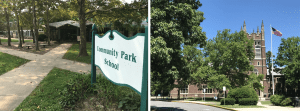 Question 1 ($37.9M) will allow for expansion at Community Park Elementary School with creation of additional classrooms, a multipurpose room and enhancements to the cafeteria, library and music room. It would also replace and rehab Princeton High School HVAC systems.
Question 1 ($37.9M) will allow for expansion at Community Park Elementary School with creation of additional classrooms, a multipurpose room and enhancements to the cafeteria, library and music room. It would also replace and rehab Princeton High School HVAC systems.
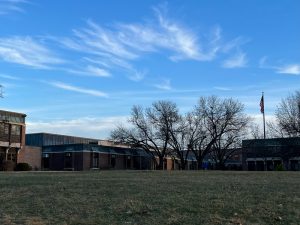 Question 2 ($38.3M) provides for expansion of the vocal music and bands rooms at Princeton Middle School (PMS) as well as the addition of a multipurpose room and new science classrooms. The PMS cafeteria would also be renovated and expanded, and district technology offices would relocate to that school. At Princeton High School, the Numina Art Gallery would be updated as well.
Question 2 ($38.3M) provides for expansion of the vocal music and bands rooms at Princeton Middle School (PMS) as well as the addition of a multipurpose room and new science classrooms. The PMS cafeteria would also be renovated and expanded, and district technology offices would relocate to that school. At Princeton High School, the Numina Art Gallery would be updated as well.
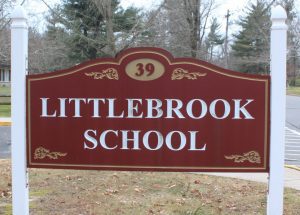 Questions 3 ($12.9M) would cover costs for Littlebrook Elementary School expansion to include new classrooms and a vocal music room, as well as renovations to the student support services and small-group instruction areas.
Questions 3 ($12.9M) would cover costs for Littlebrook Elementary School expansion to include new classrooms and a vocal music room, as well as renovations to the student support services and small-group instruction areas.
(for the full scope, details are on the PPS Referendum website.)
FINANCIAL CONSIDERATIONS AND IMPACTS
If the full referendum request is approved by voters, approximately $19.9M will be covered by the state of NJ in Debt Service Aid. That leaves $69.2M to be purchased by the district as bonds, ultimately paid off over time through municipal taxing (projects in Question 1 will be funded over 25 years, while those in Questions 2 & 3 will be funded over 27 years). The tax impact, based on the average Princeton assessed home value of $853,136, would be an additional $532/year if all three questions pass. It would be $447/year if just Questions 1 & 2 pass, and $222/year if just Question 1 is approved.
Princeton Public Schools, like all schools in NJ, can only fund infrastructure projects through referendum or via money allocated to Capital Reserves. Most recently, Princeton voters have approved PPS referendums in 2023 ($13M), 2022 ($17.5M) and 2018 ($26.9M). The averaged assessed homeowner today is currently paying $375/year towards debt service from previous referendums.
 In a few larger school districts around New Jersey, such as West Windsor-Plainsboro, they have been able to put aside money in Capital Reserves to accumulate larger sums (the district had in excess of $20M last year, and as much as $28M in recent years). Such large fund balances can be used to cover the costs for major projects, without the need for a public bond referendum. This would mean money not spent from the operating budget gets moved into and builds through the years in Capital Reserves, which some suggest is rarely feasible. Others wonder why PPS doesn’t try harder to do this.
In a few larger school districts around New Jersey, such as West Windsor-Plainsboro, they have been able to put aside money in Capital Reserves to accumulate larger sums (the district had in excess of $20M last year, and as much as $28M in recent years). Such large fund balances can be used to cover the costs for major projects, without the need for a public bond referendum. This would mean money not spent from the operating budget gets moved into and builds through the years in Capital Reserves, which some suggest is rarely feasible. Others wonder why PPS doesn’t try harder to do this.
“With the huge amount of money we send to the schools via our taxes, why pass yet another referendum?” local Warren Land questions. “And this one will increase my taxes another $600 or $700 dollars a year!”
“I would like the board and superintendent to set out how they have tried to control costs to reduce the impact of the property tax increase based on issuing new bonds. How have they addressed health insurance costs? How have they addressed the number of administrators?” another resident, William Hare suggests, “While asking for a tax increase on the one hand to pay for capital improvements, it would be helpful to see that they have tried to reduce the annual tax increase by creative thinking to reduce or at least control other costs.”
PPS says most of its budget goes towards teachers and support staff. Funding decisions can also have limited flexibility due to inflation, requiring the need for buffer monies. Operating budgets also need enough funding to cover mandates, such as through agreements it makes with the unions when it comes to health insurance and other needs. While the reality is that non-general operating expenses are not required to be funded through referendum – there are other reasons why it is sometimes more feasible or sensible for a district to do so. When it comes to school district budgeting in smaller districts like Princeton, cutting other spending and accumulating in Capital Reserves for future projects is further limited due to the state’s 2% tax cap increase. PPS tells Princeton Perspectives it often uses Capital Reserve savings for HVAC projects and other needs, likely not exceeding $1-2M in costs. Allocating money into Capital Reserves can be complicated and some argue that structure would lead to overtaxing for a period of time; but it can sometimes be done through prudent fiscal management.
“The failure in leadership of the Board to have selected an appropriate superintendent and the firing of the high school principal makes me hesitate to vote for this large expansion,” a Princeton taxpayer shared anonymously, as she ponders the decision. “I have been a long supporter of the Princeton Public Schools, but the lack of good decision making on the part of the school and Planning Board makes me lack confidence in their ability to manage such a large project. However, the students will pay the price.”
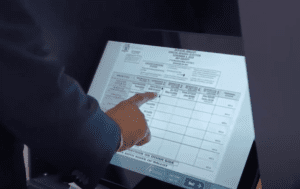 Another financial concern that has been raised by members of the community is why the referendum vote is taking place as a special election, at additional cost to the district, rather than paired with the General Election held back in November. Turnout is also a concern. The 2024 General election had votes cast by 55.6% of registered voters compared to recent special referendum elections such as in 2018 (18.67% turnout) and 2022 (17.66% turnout). As we shared in the Perspectives Revisited section in September, PPS BOE President Dafna Kendal said there was no intentional delay, but once submissions were made to the state and responded to, turnaround time was not sufficient for a November vote. Despite the skepticism, there are those in the community not bothered by the timing and feel the referendum is a prudent way to benefit PPS, where the state kicks in aid to reduce the overall impact of the cost.
Another financial concern that has been raised by members of the community is why the referendum vote is taking place as a special election, at additional cost to the district, rather than paired with the General Election held back in November. Turnout is also a concern. The 2024 General election had votes cast by 55.6% of registered voters compared to recent special referendum elections such as in 2018 (18.67% turnout) and 2022 (17.66% turnout). As we shared in the Perspectives Revisited section in September, PPS BOE President Dafna Kendal said there was no intentional delay, but once submissions were made to the state and responded to, turnaround time was not sufficient for a November vote. Despite the skepticism, there are those in the community not bothered by the timing and feel the referendum is a prudent way to benefit PPS, where the state kicks in aid to reduce the overall impact of the cost.
“I’ve been following the referendum planning pretty closely, and I’ve been really impressed by how carefully the district has planned this referendum to provide essential additional space in a way that maximizes state aid,” says Princeton resident Jane Manners. “I’ve got three kids, one in Littlebrook, one at Princeton Middle School, and one at Princeton High School, and I can tell you the schools are already bursting at the seams— and we’re expecting big enrollment increases in the years ahead. This referendum is an extremely well-planned solution to the challenges posed by our town’s growing population, and it will preserve both our schools’ excellent quality and high home values for all Princeton homeowners.”
Tara Oakman also has children in Princeton Public Schools. She adds, “In Princeton, we pride ourselves on our public schools and the quality of education they provide. But excellence requires sustained investment. I am highly supportive of this bond referendum because it provides some of the critical and baseline support that our school facilities need to keep up with modern educational standards and population growth in town. But even setting aside those changes, these investments are overdue — they were necessary years ago and are absolutely critical now.”
OTHER IMPACTS AND LOGISTICAL CONSIDERATIONS
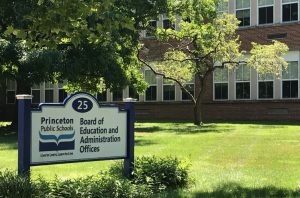 PPS says there will be substantial redistricting and increases to class sizes if the referendums do not pass. It says one reason the referendum is needed is due to 1,000 additional units of housing garnered through the multi-unit developments recently built, such as at Avalon Princeton Circle, The Alice Princeton and Avalon Princeton on Harrison.
PPS says there will be substantial redistricting and increases to class sizes if the referendums do not pass. It says one reason the referendum is needed is due to 1,000 additional units of housing garnered through the multi-unit developments recently built, such as at Avalon Princeton Circle, The Alice Princeton and Avalon Princeton on Harrison.
“The town should pay for some of this as they created the issue with so many apartments coming online with no money going to the schools,” a frustrated Princeton homeowner shared with Princeton Perspectives. “It would be great if we could vote on individual items and priority. Also, on a spending limit. So, we would need to know how much each aspect of this plan is expected to cost and we could hold people accountable.”
Some cite that several of the referendum items have been on the docket in different ways for years, before those apartment complexes were a reality. Others questions how the slow turnover in Princeton’s housing market might be countering the narrative of the new student impact. Former BOE member Daniel Dart does not believe the PPS population will feel the brunt that’s being feared.
“Princeton Public Schools is shrinking due to aging populations and declining birthrates. PPS reported that a recent peak in enrollment occurred in 2019 with 3,855 students and has shrunk to 3,669 students, a net reduction of 186 students,” Dart states.
Should there still be needs for expansion, others feel the funding should come by way of the PILOT agreements (payment in lieu of taxes) made between the municipal government and those large development contractors.
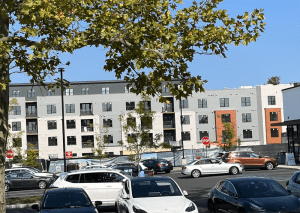 Why aren’t monies from the PILOTs immediately offsetting the increased enrollment and limiting the need for referendum? Of the three major developments recently built, much of the money from the PILOT agreements has been redirected, as part of the agreement to build. For example, at Avalon Princeton Circle, PILOT monies funded Thanet Development – Princeton Senior Living affordable senior housing. At The Alice, remediation, sustainability elements and the addition of public pedestrian/bike paths are some uses of those funds.
Why aren’t monies from the PILOTs immediately offsetting the increased enrollment and limiting the need for referendum? Of the three major developments recently built, much of the money from the PILOT agreements has been redirected, as part of the agreement to build. For example, at Avalon Princeton Circle, PILOT monies funded Thanet Development – Princeton Senior Living affordable senior housing. At The Alice, remediation, sustainability elements and the addition of public pedestrian/bike paths are some uses of those funds.
Where a valuable amount of money may become available is from the PILOT made with Avalon Princeton on Harrison, but that would not be available until the units are filled (likely bringing in up to $1M in 2026). Once that money starts coming in, the municipality will have leverage to decide how to use those funds. Some possibilities include adding it to the general tax base to bring everyone’s taxes down or it could be given directly to the schools for facilities expenditures as done in other NJ districts. Should the municipality soon become owners of the Westminster property, and the school district decide it wants to use part of it for expanded school structures, perhaps PILOT funds could be used to defray those costs.
“As an empty nester I think nothing should be done until we know what the future holds for the Westminster college property. If the municipality is contemplating this purchase, the entire district-wide plans need to consider what this offers in facilities,” says longtime taxpayer, Ken Verbeyst.
While home values in Princeton remain higher than some neighboring communities, in part, because of its strong schools, other longtime members of the community suggest the impact of another referendum that creates a deeper tax burden is making their homes unaffordable.
“While it is understandable that facilities, classrooms, etc. need maintenance and expansion, the current system of raising taxes to pay for what is needed is unsustainable for longtime residents. Increasing real estate taxes every year or so is easily absorbed by persons in the work force with increasing income, but many residents are absorbing the real estate tax increases by cutting back in other expenses, sacrificing their standard of living,” another Princeton resident anonymously explains. “There is so much emphasis on affordable housing by the socially conscious town council, but very little consideration for the affordability of staying in Princeton as a long-time homeowner.”
THE NEED FOR CHANGE AT PPS
 Though many are feeling the pressure of additional taxation, PPS says some changes are needed. The additions of students from the current apartment units and those expected to be built in the near future are expected to be added primarily in the Community Park area as well as in Littlebrook. That is why additions are specifically recommended at those schools, as well as at Princeton Middle School and Princeton High School. The construction timeline for the referendum items would likely run into 2028, when an expected fuller impact of additional students will be here.
Though many are feeling the pressure of additional taxation, PPS says some changes are needed. The additions of students from the current apartment units and those expected to be built in the near future are expected to be added primarily in the Community Park area as well as in Littlebrook. That is why additions are specifically recommended at those schools, as well as at Princeton Middle School and Princeton High School. The construction timeline for the referendum items would likely run into 2028, when an expected fuller impact of additional students will be here.
“We are really excited about the referendum. We believe that it is a very cost-effective way to add classroom spaces to our buildings to ensure that we are able continue the high level of teaching and learning that is the hallmark of the Princeton Public Schools,” notes Princeton BOE President Kendal. “If all 3 questions are approved, we will receive more than $19 million in state aid. However, we also understand that the tax impact of all three questions might be too big a lift for the community, so we’ve prioritized the questions in order of our most critical needs. We will have many opportunities for engagement over the next two months and we’re excited to share our plans to address student enrollment growth in our schools with the community.”
If you have further questions you want answered, or simply want to learn more about the schools and student-body impacts, there will be a Public Community forum Saturday, January 11th, 9-11am at Princeton Middle School. You can also signup here to tour the school buildings that would be most impacted by the referendum.
HOW CAN YOU VOTE?
Whatever your view of the referendum questions, you should be prepared to weigh in at the polls.
To vote on the referendum, you must be a registered Princeton voter by January 7th.
If you have previously registered to vote by mail for the general election, the vote by mail ballot will be automatically sent to you. If you have not, and prefer or need to vote by mail, you can access an application here.
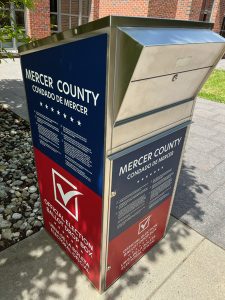 Mail-in ballots can be returned a few ways:
Mail-in ballots can be returned a few ways:
- if mailing it in, it needs to be postmarked by the 28th; or
- it needs to be deposited in a drop box by 8 pm on the 28th; or
- hand delivered to the county clerk’s office by 8 pm on the 28th
Should you choose in-person voting, there will be four locations to vote at on January 28th (locations soon to be announced), and residents can cast their votes at any of the locations, regardless of your voting district.

Lisa Jacknow spent years working in national and local news in and around New York City before moving to Princeton. Working as both a TV producer and news reporter, Lisa came to this area to focus on the local news of Mercer County at WZBN-TV. In recent years, she got immersed in the Princeton community by serving leadership roles at local schools in addition to volunteering for other local non-profits. In her free time, Lisa loves to spend time with her family, play tennis, sing and play the piano. A graduate of the S. I. Newhouse School of Public Communications at Syracuse University, Lisa was raised just north of Boston, Massachusetts but has lived in the tri-state area since college. She is excited to be Editor and head writer for Princeton Perspectives!
